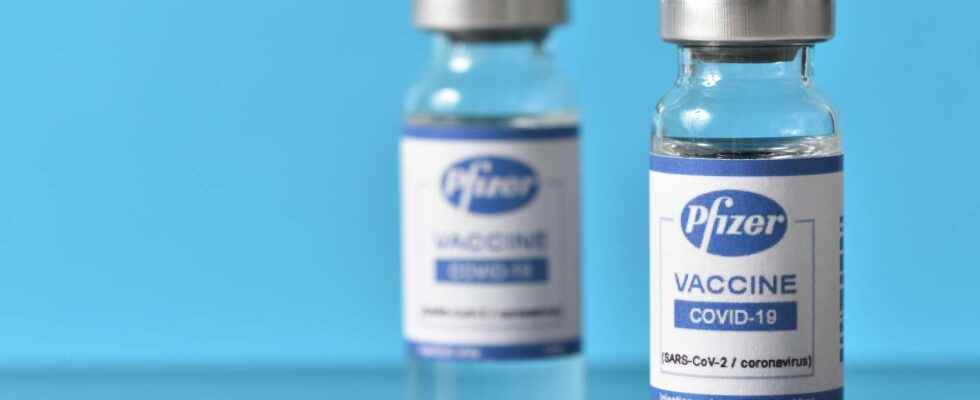This is the question everyone is asking: will the vaccines currently available be able to protect us from the Omicron variant? First real-life data is now available. These come from South Africa and the United Kingdom, two countries particularly affected by the Omicron wave.
You will also be interested
[EN VIDÉO] How does a messenger RNA vaccine work? Pfizer and Moderna have chosen this cutting-edge technique to design their vaccine against Covid-19 in record time. This video presents everything you need to know about messenger RNA vaccines in three minutes!
It is now almost certain that the Omicron variant is more contagious that the Delta variant. It should become predominant in Europe in January 2022. The United Kingdom considers that the Omicron variant is between 3.2 and 3.7 times more contagious than the Delta variant. It became the majority in this country on December 16, 2021, just 23 days after South Africa’s announcement. Regarding the dangerousness of this variant, it is too early to conclude. But it would seem to cause lighter shapes of the disease than the Delta variant. And concerning the effectiveness of vaccines available? First real-life data is now available.
Real-life data, what is it?
Before a drug is authorized on the market, clinical trials are carried out and the data analyzed. After its release, data continues to be collected via different channels. The main one is the administrative channel; it is about the health system which allows the assumption of responsibility of the care.
Analysis of these data provides information that clinical trials cannot provide. The number of patients is much greater and the environment is not controlled. Of course, everything is done during the analysis to guarantee the confidentiality personal health data.
Three doses of Pfizer-BioNTech vaccine partially protect
A british study was carried out on 581 Omicron cases, 56,439 Delta cases and 130,867 negative cases (controls). The results are astounding:
- Two doses of the vaccine AstraZeneca provide no protection against the Omicron variant (vs. 76.2% against the Delta variant).
- Two doses of the Pfizer-BioNtech vaccine show an efficacy of 35% 15 weeks after the second injection (vs 63.5% against the Delta variant).
- Three doses of the Pfizer-BioNtech vaccine show an efficacy of 75.5% 2 weeks after the third injection (vs 92.6% against the Delta variant).
A south african study was also carried out on 58,000 suspected cases of the Omicron variant and 211,000 cases of the Delta variant. Two doses of the Pfizer-BioNtech vaccine show 33% efficacy on all forms of the disease. On the other hand, the efficacy on severe forms of the disease would be 70% after two doses, regardless of the age of the patients.
Pfizer-BioNTech vaccine may slow the progression of virus with its 75% efficiency rate after 3 doses. Knowing that the effectiveness of vaccines weakens in the months following the last injection, how long will this relative protection last? In this context, vaccines adapted to this new variant are eagerly awaited.
Interested in what you just read?
.
fs6
